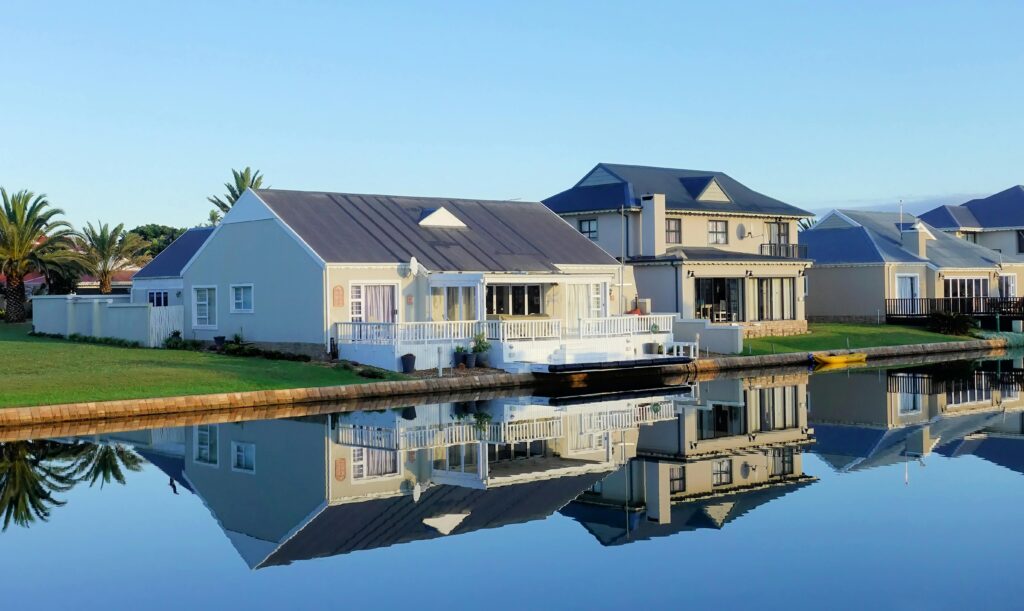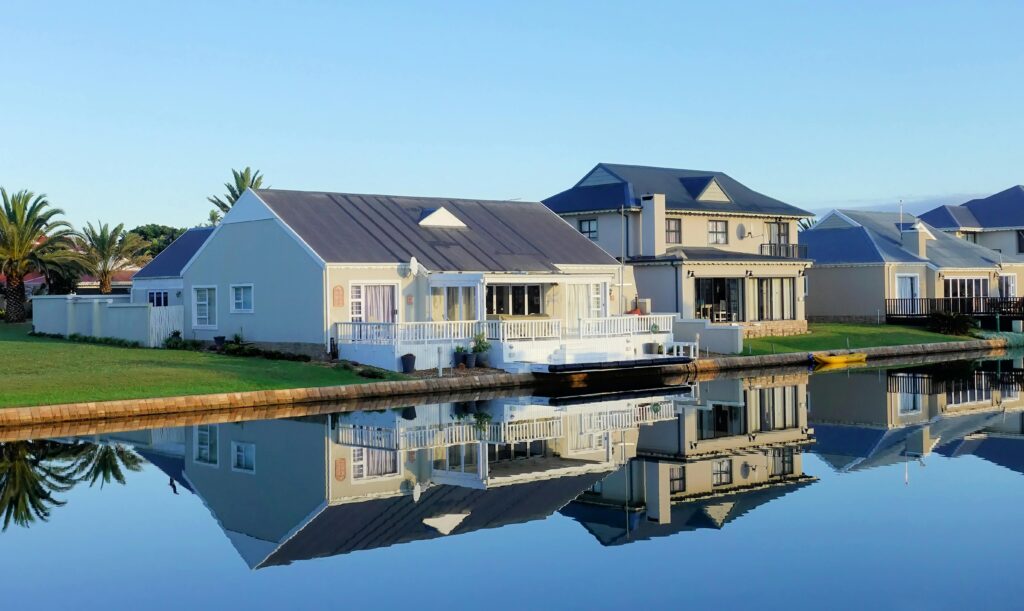Managing multiple Airbnb accounts is a high-stakes game that separates the amateur hosts from the real estate titans.
If you’re serious about dominating the short-term rental business, you need systems, strategies, and a relentless focus on efficiency to juggle multiple properties without breaking a sweat.
At 10XBNB, we’ve cracked the code on scaling Airbnb empires, and we’re here to share the exact playbook that top hosts use to manage multiple Airbnb accounts like a pro.
Whether you’re handling one Airbnb account or orchestrating a portfolio across different cities, this Airbnb Business page will arm you with the tools, insights, and mindset to 10X your hosting game.
Why Managing Multiple Airbnb Accounts Is the Key to Exponential Growth

Scaling your Airbnb business means moving beyond a single Airbnb account to oversee multiple listings across several accounts or properties.
The ability to manage multiple accounts efficiently unlocks exponential revenue streams, but it comes with challenges like avoiding double bookings, maintaining guest communications, and adhering to Airbnb’s guidelines.
With the right approach, you can turn these challenges into opportunities to build a property management business that runs like a well-oiled machine.
Can You Have Multiple Airbnb Accounts? Understanding Airbnb’s Rules
Airbnb’s guidelines are clear: hosts are generally expected to operate under one Airbnb account to list multiple properties.
Creating multiple Airbnb accounts for the same property or using the same contact information across different accounts can lead to account suspension.
However, there are legitimate scenarios where managing multiple accounts is necessary, such as when you’re a property manager overseeing properties for different owners or operating in distinct markets.
Airbnb allows co-hosting features to access multiple listings under one account, but separate accounts may be needed for entirely separate portfolios.
Pro Tip: Always verify your active account details to ensure compliance with Airbnb’s policies. Using different email addresses for each Airbnb account is a must to avoid confusion or penalties.
Can I Have Two Airbnb Accounts with the Same Phone Number?
A common question is whether two Airbnb accounts can share the same phone number. The answer is no—Airbnb requires unique contact details for each account to prevent fraud and ensure efficient communication.
If you’re managing multiple Airbnb accounts, use distinct phone numbers and email addresses for each to keep your accounts secure and operational. This also helps streamline guest inquiries and prevents mix-ups when handling incoming bookings.
How to Manage Two Airbnb Accounts Like a Pro
Managing two Airbnb accounts requires precision and organization. Here’s how to do it without losing your mind:
- Centralize Your Operations: Use vacation rental software like Hostaway or Guesty to manage multiple accounts from a single dashboard. These tools sync booking calendars, automate guest communications, and track performance across all your Airbnb listings.
- Delegate to a Team: Assign a team member or co-host to handle specific tasks like cleaning or guest check-ins. Platforms like 10XBNB offer training to build a rockstar team that keeps your properties humming. Learn more about scaling your team at 10XBNB’s Airbnb Accounts resource.
- Sync Calendars Religiously: To prevent double bookings, ensure all calendars are synced across multiple platforms like Airbnb and Vrbo. Double bookings can tank your guest feedback and Superhost status.
- Standardize House Rules: Create consistent house rules across all listings to simplify guest expectations and reduce confusion.
How Many Airbnb Properties Can One Person Manage?
The number of Airbnb properties one person can manage depends on your systems and support. A solo host can realistically handle one or two properties without automation, but scaling to six or more listings requires vacation rental software and a team.
Top hosts managing multiple properties often oversee 10–20 listings by leveraging property management companies or co-hosts. At 10XBNB, we’ve seen hosts manage 50+ properties by mastering delegation and technology, turning their short-term rentals into a full-fledged property management business.
Unique Insight: The tipping point for most hosts is around five listings. Beyond this, manual management becomes a bottleneck. Invest in systems early to avoid burnout and maximize profits.
The Power of One Account: Why Consolidation Is King
While managing multiple Airbnb accounts is possible, consolidating your listings under a single Airbnb account is often the smarter move.
Airbnb’s host dashboard allows you to list multiple properties, access multiple listings, and manage incoming bookings from one place. This reduces the risk of scheduling conflicts and simplifies guest communications. Plus, focusing on one account helps you build Superhost status faster, which boosts your visibility and bookings.
Pro Tip: If you’re tempted to merge multiple Airbnb accounts, know that Airbnb doesn’t allow direct merging. Instead, transfer listings manually by recreating them under your primary account and coordinating with Airbnb support to honor pending reservations.
Tools to Manage Multiple Airbnb Accounts with Ease
To manage multiple accounts or listings, you need tools that save time and eliminate errors. Here are the must-haves:
- Vacation Rental Software: Platforms like Lodgify or Uplisting centralize your Airbnb multiple accounts, syncing calendars and automating pricing. This is critical to avoid double bookings and maintain competitive pricing.
- Dynamic Pricing Tools: Tools like PriceLabs analyze market demand to optimize rates across multiple properties, ensuring you never leave money on the table.
- Automated Messaging: Set up automated messaging for guest inquiries and check-in instructions to save hours each week.
- Noise Monitoring Devices: Protect your properties from unauthorized parties with tools like those recommended in 10XBNB’s noise monitoring guide.
The Role of Technology in Managing Multiple Properties

Technology is the backbone of managing multiple Airbnb accounts. Beyond vacation rental software, invest in reliable Wi-Fi to ensure guests stay connected and leave glowing reviews. Check out 10XBNB’s guide to the best Wi-Fi for Airbnb hosts for recommendations. Additionally, use smart locks and security systems to streamline check-ins and enhance guest safety, especially when managing properties in different cities.
Building a Team to Scale Your Airbnb Empire
No host can manage multiple listings alone forever. Build a team of cleaners, maintenance staff, and co-hosts to handle day-to-day operations. A property manager can oversee multiple properties, freeing you to focus on growth. 10XBNB’s training programs teach you how to recruit and train a team that runs your short-term rentals like a Fortune 500 company.
Pro Tip: Standardize cleaning protocols with high-quality vacuums tailored for Airbnb hosts. See 10XBNB’s vacuum recommendations to keep your properties spotless.
Dynamic Pricing: Maximizing Revenue Across Multiple Listings
Dynamic pricing is a game-changer for managing multiple Airbnb accounts. By adjusting rates based on demand, seasonality, and local events, you can boost revenue by 20–30%. Tools like Beyond Pricing integrate with your Airbnb account to set competitive pricing for each listing, ensuring you capitalize on peak seasons while filling gaps during slower periods.
Avoiding Double Bookings: A Non-Negotiable for Success
Double bookings are the kiss of death for an Airbnb host. They lead to cancellations, negative guest feedback, and potential account penalties. To prevent double bookings:
- Sync calendars across all platforms and accounts.
- Use vacation rental software to manage multiple accounts in real time.
- Regularly check your host dashboard for pending reservations.
Unique Insight: Set buffer times between bookings to allow for cleaning and maintenance, reducing the risk of scheduling conflicts.
Streamlining Guest Communications Across Multiple Accounts
Efficient communication is critical when managing multiple Airbnb accounts. Use templated responses for common guest inquiries and automate check-in instructions. Tools like Smartbnb allow you to manage guest communications across different Airbnb accounts, ensuring consistency and professionalism.
The Pros and Cons of Managing Multiple Airbnb Accounts
Pros:
- Diversified income streams from multiple properties.
- Ability to target different markets and guest types.
- Scalability to grow your property management business.
Cons:
- Increased complexity in managing multiple accounts.
- Higher risk of double bookings without proper systems.
- Potential for Airbnb policy violations if not managed carefully.
Why You Shouldn’t Merge Multiple Airbnb Accounts
Attempting to merge multiple Airbnb accounts is a headache Airbnb doesn’t support. Instead of merging, consolidate listings under one account or use co-hosting features to manage properties for others. If you need to close an account, permanently delete it only after transferring all active listings and resolving pending reservations.
Leveraging Co-Hosts to Manage Multiple Listings
Co-hosts are a secret weapon for managing multiple Airbnb accounts. They handle guest communications, check-ins, and cleaning, allowing you to scale without micromanaging. Airbnb’s platform lets you invite co-hosts to access multiple listings under your account, streamlining operations. 10XBNB’s co-host training programs can turn you into a co-hosting pro, helping you manage properties for others while earning a cut of the profits.
Optimizing Listings for Maximum Visibility
Each Airbnb listing must stand out to attract bookings. Use high-quality photos, detailed descriptions, and optimized house rules to boost visibility. For properties with multiple listings, tailor each listing to highlight unique features, like proximity to local attractions or premium amenities. 10XBNB’s expertise in crafting standout listings can help you dominate search results.
Managing Linen Services for Multiple Properties
Clean linens are non-negotiable for guest satisfaction. When managing multiple properties, outsource to professional linen services to save time and ensure consistency. 10XBNB’s guide to Airbnb linen services offers tips to streamline this process, keeping your properties guest-ready.
Scaling to Six or More Listings: What You Need to Know
Once you hit six or more listings, you’re no longer a host—you’re running a property management company. At this stage, invest in advanced vacation rental software, hire a dedicated property manager, and consider forming an LLC to protect your assets. 10XBNB’s resources can guide you through this transition, helping you build a scalable business.
Handling Guest Feedback Across Multiple Accounts

Guest feedback can make or break your Airbnb business. Respond promptly to reviews, addressing concerns professionally to maintain your Superhost status. Use feedback to improve individual listings, whether it’s upgrading amenities or refining house rules. Consistent positive reviews across multiple listings boost your credibility and bookings.
The 10XBNB Advantage: Your Path to Airbnb Domination
Managing multiple Airbnb accounts is about working smarter, not harder. At 10XBNB, we empower hosts to scale their short-term rentals with battle-tested strategies, cutting-edge tools, and elite training. Our programs teach you how to manage multiple properties, optimize pricing, and build a team that runs your business like a machine. Ready to 10X your Airbnb game? Join the 10XBNB community and start building your rental empire today.
Final Thoughts: Master Managing Multiple Airbnb Accounts
Managing multiple Airbnb accounts is your ticket to financial freedom, but it requires discipline, systems, and the right mindset. By consolidating listings under one account where possible, leveraging vacation rental software, and building a stellar team, you can scale your Airbnb business to heights you never imagined. With 10XBNB’s expertise, you’re not just managing properties—you’re building a legacy. Take action now, implement these strategies, and watch your short-term rental business soar.













